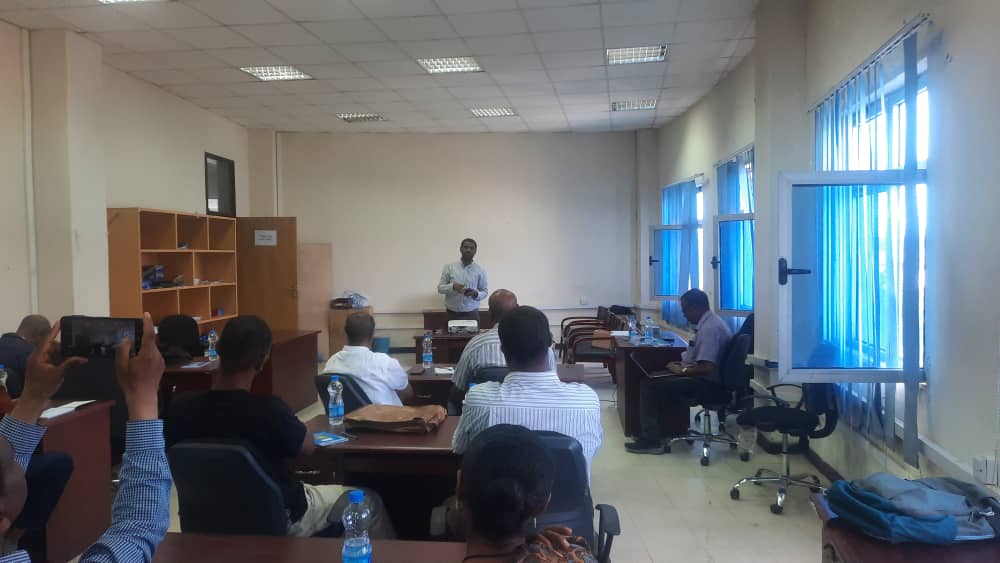
BDU conducts Staff Capacity Building Training on Curriculum Evaluation, Action Research, and Teaching Pedagogy
BDU APPEAR
10 May, 2025
As part of the LINK Project—“Establishing Transformative Learning, Research and Community Outreach and Capacities in Agroecology”—a training on “Curriculum Evaluation, Action Research, and Teaching Pedagogy” was conducted on May 5, 2025, at Bahir Dar University (BDU).
The LINK Project is jointly implemented by Bahir Dar University and the University College for Agrarian and Environmental Pedagogy (HAUP), Austria, and is funded by APPEAR (Austrian Partnership Programme in Higher Education and Research for Development).
The training brought together 14 participants, including curriculum reviewers and academic staff from the Department of Agroforestry and Natural Resource Management, representatives from Amhara Region Agricultural Research Institute (ARARI), and members of the LINK Project team. It aimed to enhance participants’ understanding of curriculum evaluation, action research methodologies, and innovative teaching pedagogy—key components in the ongoing revision of the MSc Agroforestry program.
In his welcoming remarks, Dr. Tesfaye Shiferaw, Assistant Coordinator of the LINK Project, emphasized the importance of translating the training outcomes into practical teaching and research improvements to produce graduates who can drive sustainable change in their communities. Dr. Molalign Haile, Academic Executive Director of BDU, officially opened the training, commending the project team for their commitment to quality curriculum development and encouraging continued integration of stakeholder feedback.
The sessions, facilitated by Prof. Tadesse Melese, curriculum expert and researcher in College of Education, BDU and Dr. Zewdu Emiru, V/President for Information & Strategic Communication, BDU and Advocacy, Editor and Media Relation Lead of LINK Project, covered three major areas:
- Curriculum Evaluation and Revision – focusing on aligning curriculum with relevance, stakeholder needs, and 21st-century skills.
- Innovative Teaching Pedagogy – highlighting learner-centered, inclusive, and green pedagogical approaches.
- Action Research – emphasizing participatory, reflective, and problem-solving methods linked to real-world agroforestry challenges.
The training concluded with a general discussion on integrating these insights into the MSc Agroforestry curriculum revision. Participants agreed to apply the knowledge gained to ensure the revised curriculum is contextually relevant, research-informed, and responsive to community and environmental needs.
This training marks another significant milestone in the LINK Project’s efforts to strengthen transformative learning, research, and community engagement capacities in agroecology at Bahir Dar University.
